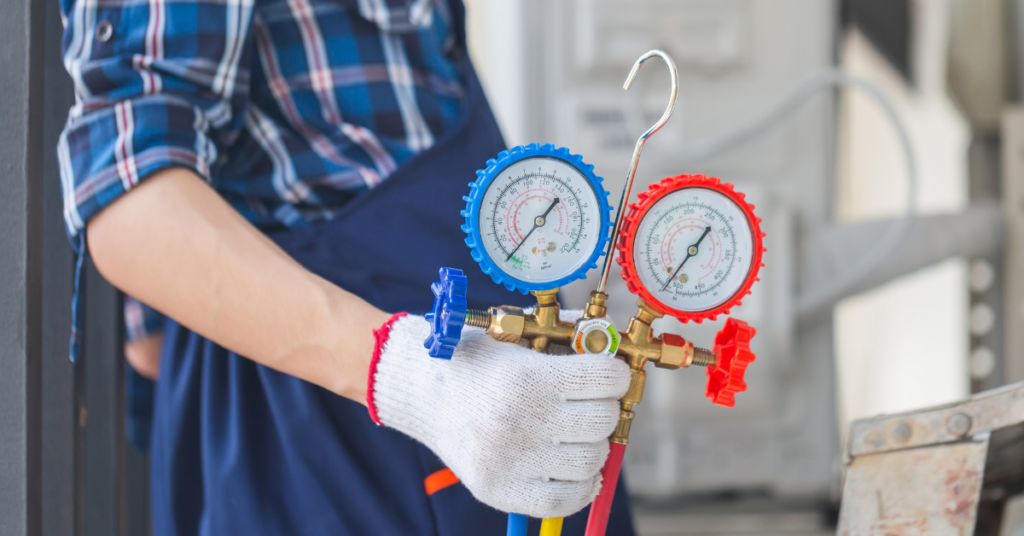Key Points:
- Introduction
- Understanding Your Air Conditioning System
- Regular AC Maintenance Practices
- Energy Efficiency Tips
- Signs Your Air Conditioning System Needs Attention
- Extending the Lifespan of Your Air Conditioning System
Introduction
Air conditioning is a vital component of modern living, providing comfort and improved air quality in homes and workplaces. To ensure your ac system operates efficiently and has a long lifespan, regular maintenance and mindful usage are essential. Neglecting these aspects can lead to decreased performance, higher energy bills, and costly repairs. In this comprehensive guide, we will explore effective strategies.
Understanding Your Air Conditioning System
Before delving into maintenance tips, it’s important to understand the basic components. Most central air conditioning systems consist of an indoor unit (evaporator coil), an outdoor unit (condenser coil), ductwork, and a thermostat. The evaporator coil absorbs heat from the indoor air, while the condenser coil releases it outside. The thermostat regulates the system’s operation to maintain the desired indoor temperature. Familiarizing yourself with these components will help you perform maintenance tasks more effectively and communicate better with HVAC professionals when needed.
Regular AC Maintenance Practices
- Replace Air Filters Frequently
One of the simplest yet most crucial maintenance tasks is replacing the filters regularly. Clogged or dirty filters restrict airflow, forcing to work harder and reducing its efficiency. It’s recommended to check the filters monthly and replace them every 1-3 months, depending on usage and the manufacturer’s guidelines. Homes with pets or residents with allergies may require more frequent filter changes to maintain optimal air quality.
- Clean the Coils
Both the evaporator and condenser coils can accumulate dirt over time, impairing heat absorption and release. It’s advisable to clean the coils at least once a year. For the evaporator coil, gently remove dust and debris using a soft brush or cloth. The condenser coil, located in the outdoor unit, can be cleaned by removing any debris around the unit and gently washing the coils with a garden hose. Ensure the power is turned off before performing any cleaning tasks to prevent accidents.
- Inspect and Clean the Condensate Drain
The condensate drain allows moisture collected from the indoor air to exit. Over time, this drain can become clogged with algae, mold, or debris, leading to water damage and increased humidity levels. Periodically inspect the drain for blockages and clean it using a mixture of bleach and water to prevent buildup. Keeping the drain clear ensures proper moisture removal and prevents potential water damage to your home.
- Check Thermostat Settings
Ensure your thermostat is functioning correctly and set to a comfortable temperature. Consider upgrading to a programmable or smart thermostat, which allows you to set temperature schedules that align with your daily routine. This not only enhances comfort but also reduces energy consumption by adjusting temperatures during times when the home is unoccupied. Proper thermostat management can lead to significant energy savings over time.
- Maintain the Outdoor Unit
The outdoor unit (condenser) should be kept free from obstructions to ensure proper airflow. Regularly inspect the area around the unit and remove any debris, such as leaves, grass clippings, or dirt. Trim any nearby vegetation to maintain at least a two-foot clearance around the unit. Additionally, ensure the unit is level; an unlevel unit can cause compressor issues and reduce system efficiency.
- Schedule Professional Inspections
While regular DIY maintenance is essential, it’s also important to have inspected by a certified HVAC technician annually. Professionals can identify and address potential issues before they become major problems. They will check refrigerant levels, inspect electrical components, and ensure the system is operating efficiently. Regular professional maintenance can extend the lifespan and prevent unexpected breakdowns.
Energy Efficiency Tips

- Seal and Insulate Ductwork
Leaky or poorly insulated ducts can lead to significant energy loss, causing your system to work harder to maintain the desired temperature. Inspect your ductwork for leaks and seal them using mastic sealant or metal tape. Additionally, ensure that ducts running through unconditioned spaces are properly insulated to prevent energy loss. Properly sealed and insulated ducts improve efficiency and reduce energy costs.
- Use Ceiling Fans
Ceiling fans help circulate cool air throughout your home, allowing you to set your thermostat a few degrees higher without sacrificing comfort. Ensure your fans are set to rotate counterclockwise during the summer months to create a cooling breeze. Using fans in conjunction can lead to energy savings and enhanced comfort.
- Close Curtains and Blinds
Sunlight streaming through windows can significantly increase indoor temperatures, causing your air conditioning system to work harder. Close curtains or blinds during the hottest parts of the day to reduce heat gain. Consider using reflective or blackout curtains for added efficiency. By minimizing heat gain, you can maintain a comfortable indoor environment and reduce energy consumption.
- Avoid Heat-Generating Activities During Peak Hours
Activities such as cooking, using the oven, or running the dishwasher can generate additional heat, making it harder to cool your home. Try to schedule these activities during cooler parts of the day or use alternative methods, such as grilling outdoors or air-drying dishes. Reducing indoor heat generation helps maintain a comfortable temperature and reduces the load on it.
Signs Your Air Conditioning System Needs Attention
Even with diligent maintenance, your AC may exhibit signs indicating it needs professional attention. Being aware of these signs can prevent minor issues from escalating into major problems:
- Reduced Airflow: If you notice weak airflow from your vents, it could indicate a blockage or a failing compressor.
- Unusual Noises: Grinding, squealing, or banging noises are not normal and suggest mechanical issues.
- Foul Odors: If you notice musty or burning smells coming from your AC, it could indicate mold growth in the ductwork or electrical issues that need professional attention.
- Frequent Cycling: If your system frequently turns on and off without maintaining a consistent temperature, it may be struggling with an underlying issue, such as a faulty thermostat or low refrigerant levels.
- Higher Energy Bills: A sudden increase in your energy bills without a corresponding change in usage patterns could indicate that your air conditioning system is losing efficiency and may require servicing.
- Warm Air from Vents: If your AC is running but blowing warm air, check your thermostat settings and filter. If the issue persists, there could be a refrigerant leak or compressor problem that requires professional diagnosis.
Extending the Lifespan of Your Air Conditioning System

By following the maintenance practices and energy efficiency tips outlined above, you can help extend the lifespan of your AC. On average, a well-maintained can last 10-15 years, while neglected units may require premature replacement. Here are additional tips to ensure long-term performance:
- Invest in a High-Quality System: If you’re in the market for a new air conditioning system, choose a reputable brand known for durability and energy efficiency. Consider a system with a high SEER (Seasonal Energy Efficiency Ratio) rating for better performance.
- Avoid Overworking: Set reasonable temperature expectations and avoid drastic thermostat adjustments. Keeping your home at a stable, moderate temperature prevents unnecessary strain on the system.
- Monitor Refrigerant Levels: Low refrigerant can lead to decreased cooling efficiency and potential compressor failure. Regular professional maintenance ensures refrigerant levels remain optimal.
- Upgrade Insulation: Improving insulation in your home reduces the workload on your AC, leading to increased efficiency and longer lifespan.
Related: Top 5 Reasons to Replace Your Air Conditioner Before Summer Starts
Conclusion
Keeping your air conditioning system running long-term requires a combination of regular maintenance, energy-efficient practices, and timely professional servicing. By replacing filters, cleaning coils, sealing ductwork, and optimizing thermostat settings, you can maximize efficiency and prevent costly repairs. Additionally, recognizing early warning signs of potential issues ensures that minor problems are addressed before they escalate.
Call to Action – Trust The HVAC Army for Expert AC Maintenance
At The HVAC Army, we specialize in keeping your air conditioning system in peak condition year-round. Whether you need routine maintenance, emergency repairs, or a system upgrade, our team of experienced HVAC technicians is here to help.
Don’t wait for your AC to break down—schedule a professional inspection with The HVAC Army today and enjoy long-term comfort and efficiency. Contact us now for expert HVAC services!
